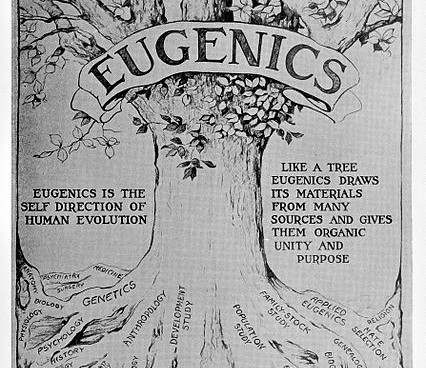From small beginnings: to build an anti-eugenic future
By Benedict Ipgrave, Miroslava Chavez-Garcia, Marcy Darnovsky, Subhadra Das, Charlene Galarneau, Rosemarie Garland-Thomson, Nora Ellen Groce, Tony Platt, Milton Reynolds, Marius Turda, Robert A Wilson,
The Lancet
| 05. 21. 2022
September, 1921 was unusually hot and New York was sweltering. For the many immigrants who crowded the city's tenements and pavements, one of the few places for relief from the incessant heat was the American Museum of Natural History. That summer the museum presented a new exhibition with rows of human skulls, snapshots of patients in psychiatric institutions, and the preserved brain of a serial killer. It was all terribly macabre. The immigrants among the museum's visitors who read the leaflet distributed at the entrance soon discovered that this exhibition was all about them. It included charts showing how migration eroded societies, statistics from IQ tests of arrivals at Ellis Island, and posters spouting anti-migrant rhetoric. All conveyed the same message: “your tired, your poor, your huddled masses yearning to breathe free” were not welcome here.
Meanwhile, just upstairs the Second International Eugenics Congress was in full swing. The ramifications of this conference would be felt across the world. Leading eugenicists at the conference argued that the science of eugenics would enable the betterment of the human “race” by selective...
Related Articles
By Dan Barry and Sonia A. Rao, The New York Times | 01.26.2026
Photo by Gage Skidmore from Peoria, AZ, United States
of America, CC BY-SA 2.0, via Wikimedia Commons
Late last month, a woman posted a photograph on social media of a purple hat she had knitted, while a black-and-white dog...
By Shobita Parthasarathya, Science | 01.22.2026
These are extraordinarily challenging times for university researchers across the United States. After decades of government largess based on the idea that a large and well-financed research ecosystem will produce social and economic progress, there have been huge cuts in...
By Nick Paul Taylor, Fierce Biotech | 01.09.2026
Menlo Ventures has made a $16 million bet that the “baby KJ” custom CRISPR therapy success story is repeatable. The funding has enabled CRISPR co-inventor Jennifer Doudna, Ph.D., and baby KJ scientist Fyodor Urnov, Ph.D., to launch Aurora...
By Stephanie Pappas, LiveScience | 01.15.2026
Genetic variants believed to cause blindness in nearly everyone who carries them actually lead to vision loss less than 30% of the time, new research finds.
The study challenges the concept of Mendelian diseases, or diseases and disorders attributed to...




